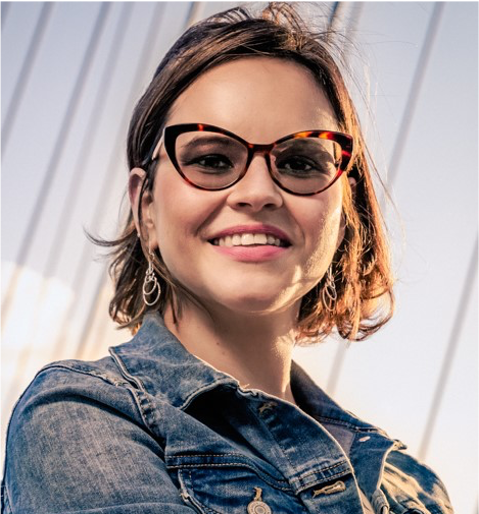When war broke out in Ukraine in February 2022, Jewish organizations in Poland jumped into action. Refugees were pouring over the border, and organizations quickly joined forces to help refugees with everything from housing to food to childcare.
“When Ukrainian refugees arrived, we just knew that we needed to help,” recalled Magda Dorosz, the executive director of Hillel Poland, and a recent alumna of M²’s Senior Educators Cohort. “We did whatever we could to provide support to people crossing the border.”
Within days, the Hillel Poland staff pivoted from working from home during a wave of Covid to transforming their office into a one-stop-shop support center for Ukrainian mothers and children.
“Many people didn’t have anywhere to go during the day, and we provided one such space,” Dorosz said. They served hot meals, offered legal and psychological support, hosted English and Polish classes, offered clothes and furniture for new apartments, and provided a safe place where kids could play and just be kids.
Coming full circle
Helping refugees is an issue that hits deeply for the Polish Jewish community. Of course, helping those in need is a major Jewish value of tikkun olam (healing the world). Because nearly every Jewish family in Poland includes Holocaust survivors, the issue feels incredibly personal as well. Stories of losing everything and having to start over in a strange place, with political forces ripping apart families, are challenges that Polish Jews know intimately. The oldest generation has lived it themselves, and the younger generations have grown up shaped by the ongoing trauma it created.
“It feels like we’re coming full circle,” explained Dorosz. “When our grandparents came back to Poland after the Holocaust, some Poles helped them rebuild their lives, and our work pays homage to that support,” she said. “In many other cases, our grandparents were shunned or isolated. They did not get the help they needed from Polish society after the war. So, this is our opportunity to change that, and to right that wrong.”
Linked by Jewish identity
Most of Hillel’s events are centered around Jewish holidays, but in the early days of the Ukrainian war, social events fell by the wayside as all energy went towards assisting the millions of refugees that crossed from Ukraine to Poland. Since the start of the war, approximately 11 million refugees have fled Ukraine through the border with Poland. Around 1.3 million are still in Poland today.
In April 2022, two months after the war began, Hillel returned to hosting Jewish events again, but with an important difference. Their events were offered in Polish, Ukrainian, and English, so that Ukrainian refugees could join and feel like they were part of the community. Hillel Poland also hired a Ukrainian engagement director, a Ukrainian young adult who studied in Poland previously and stayed there after graduating, to help with outreach to the Ukrainian Jewish community.
“Our engagement director has built a tight-knit community of Ukrainian Jewish young adults,” said Dorosz. “Our goal is to offer them a safe space where they can come together and feel connected to their Jewish identity and to each other, despite the challenges they’ve faced.”
Dorosz said the trauma is complicated and ongoing for many of the refugees, who are dealing with issues like feelings of guilt over fleeing while their friends fight, or separation anxiety from family members who were forced to stay behind.
Taking action for Ukrainian refugees
From the early, chaotic days of the start of the war in Ukraine until now, more than a year later, it can sometimes be discouraging to keep working amidst so much need, Dorosz explained.
“These individuals needed to pack up and leave their lives within hours,” she said. “The work we do is like putting a Band-Aid on a bleeding wound. There is so much therapeutic work that needs to be done, and so much healing that needs to happen.”
Even so, Dorosz said she takes heart in knowing they are taking concrete action in the face of an impossible conflict. Buoyed by the stories of their grandparents, Polish Jews are doing what they can to ease the heartbreak and trauma of fleeing a home due to war, a narrative that shaped nearly all of the Jewish families in Poland today.
Magda Dorosz is the Executive Director of Hillel Poland, which provides educational and social activities for Jewish students and young adults who are embarking on the journey of their Jewish identity discovery, strengthening it and building a community of Jewish doers and change makers who make the world a better place based on our shared values. Magda graduated from the University of Wroclaw and received an M.A. in public administration. She currently lives in Warsaw.
